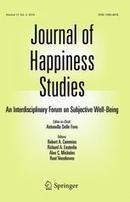Previous research mostly defines the benefits of work as the absence of unemployment’s negative outcomes or as benefits to employers, such as increased productivity. This study uses mixed methods to investigate the ways that work can enhance the well-being of the worker. Two hundred and two participants from a rural area participated in semi-structured qualitative interviews and quantitative surveys. Participants’ qualitative discussions of work in the interviews were coded with grounded theory. The majority (74.8 %) of participants mentioned work at least once during the interview, which focused on prominent moments in their life stories, and 53.3 % of work mentions were positive. Two main themes encompassing the protective benefits of work arose: self-oriented benefits and other-oriented benefits. Each main theme was further divided into three subthemes. Self-oriented subthemes were autonomy, personal development, and empowerment; other-oriented subthemes were providing for dependents, generativity, and helping others. Participants spoke about how each of these benefits enhances their well-being and happiness. The empowerment subtheme was positively correlated with workplace integration and negatively correlated with financial strain. This study uncovered protective benefits of work that have not been addressed by previous scholarship. Qualitative data provided the flexibility to explore work-related domains for which quantitative scales do not currently exist. Work is one of the main activities of most adults, and the study of the psychological benefits of work can improve our understanding of adult well-being and happiness.
Via Dr James Hawkins



 Your new post is loading...
Your new post is loading...








El trabajo puede contribuir al bienestar psicológico